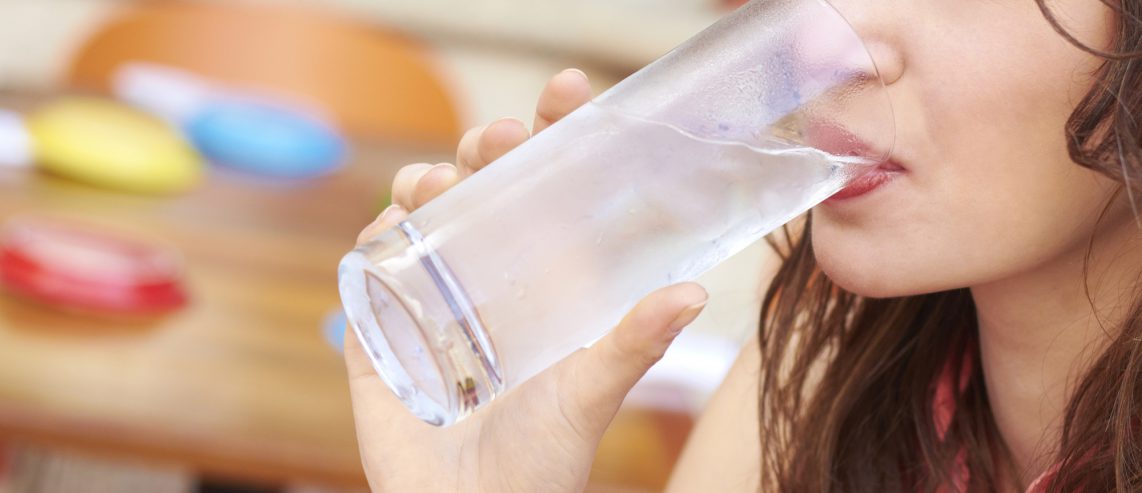Everyone gets hiccups from time to time. And while it can be embarrassing to have a loud case of hiccups in public, it’s usually nothing to worry about. Hiccups may be annoying, but they are almost always harmless and rarely last long.
Still, you may wonder: How can you get rid of the hiccups? Do home remedies like holding your breath and counting to 10 really work? What about startling someone who has hiccups?
Here’s everything you need to know about hiccups — and the best ways to deal with them.
What Are Hiccups?
The medical name for hiccups is singultus. It comes from the Latin word “singult,” which means to “catch one’s breath while sobbing.”
Here’s how hiccups occur.
First, your diaphragm has a spasm, or involuntary movement. The diaphragm is the large muscle at the base of your lungs. It separates your chest from your abdomen and helps you breathe.
Next, a structure inside your throat — the epiglottis — closes quickly. It’s the flap of tissue that closes over the windpipe when you swallow, so you don’t inhale food. This quick movement of the epiglottis causes the loud, jarring “hic” sound that identifies hiccups.
Never Miss a Beat!
Subscribe to Our HealthBeat Newsletter!
Thank you for subscribing!
You can now select the specific newsletters you'd like to receive.
You are already subscribed.
Subscribe to more newsletters in our email preference center.
Sorry, an error occurred. Please try again later.
Get Healthy Tips Sent to Your Phone!
Who Gets Hiccups?
People of all ages get hiccups. Children, teens, adults, and the elderly get hiccups.
Hiccups are common in newborns and even babies in utero. They may play a role in helping the diaphragm and other muscles learn how to breathe before the baby is born.
Doctors don’t know why, but hiccups affect more men than women.
What Causes Hiccups?
Although they are common, doctors don’t know exactly what causes hiccups. Sometimes hiccups stop and start for no apparent reason. But you often get hiccups when something irritates your diaphragm.
Possible irritants might be:
- Eating too much.
- Eating too quickly.
- Experiencing strong emotions, like stress or excitement.
- Drinking alcohol or caffeine.
- Drinking carbonated drinks.
- Eating hot, spicy foods.
- Drinking something hot followed by something very cold.
- Swallowing too much air when eating or drinking quickly.
- Chewing gum, especially nicotine gum.
- Smoking.
- Pregnancy.
- A disease or injury that affects the nerves that control the diaphragm.
- Side effects from medicines.
Hiccups may only last a few minutes, or they may linger for a few hours. They repeat at cycles of four to 60 per minute.
The good news is that hiccups almost always go away without treatment. You rarely need medical help for hiccups.
How to Stop Hiccups
Hiccups usually go away on their own. But when you’re experiencing hiccups, a few minutes can feel like a long time. You may want to try one or more of the following home remedies.
None of these treatments have been scientifically proven. However, many people swear by them, and they don’t do any harm.
If you want to get rid of hiccups, try:
- Breathing slowly and deeply into a paper bag.
- Pulling your knees to your chest and leaning forward.
- Sipping ice-cold water.
- Eating a piece of ice.
- Swallowing a teaspoon of sugar.
- Biting on a lemon.
- Taking a sip of vinegar.
- Holding your breath and counting to 10.
- Gargling with ice water.
- Try drinking water from the “wrong” side of the glass.
- Splashing cold water on your face.
- Distracting yourself by taking a walk or reading.
One caveat: The “scare treatment” is an old home remedy for hiccups, but be careful about having someone purposely frighten you. It doesn’t always work, and it could lead to an accident.
When to Call the Doctor About Hiccups
Sometimes hiccups last longer than a few minutes. It’s rare, but hiccups can last for days, weeks, and even months. Hiccups that last longer than two days may be a sign of an underlying disease.
You should call your doctor if:
- Your hiccups last longer than 48 hours.
- You get hiccups frequently, even if they don’t last for days.
- You feel like hiccups interfere with your daily life.
Hiccups that last less than 48 hours are acute hiccups. Hiccups that last more than 48 hours are persistent hiccups. If they last longer than a month, they are intractable hiccups.
Persistent or intractable hiccups may be a symptom of a disease or disorder. They may also be a side effect of medicine. Sometimes epilepsy medicine or chemotherapy for cancer can trigger long bouts of hiccups.
Persistent and intractable hiccups are no joke. They can keep you up at night and leave you exhausted. They can contribute to weight loss from not sleeping and eating normally.
These chronic hiccups can also interfere with your ability to communicate and have a normal social life. They may make you feel depressed and anxious. If you have chronic hiccups, it’s important for your doctor to diagnose and treat you for the underlying condition or disease.
Preventing Hiccups
You can’t always prevent hiccups. They often seem to happen spontaneously, with no rhyme or reason.
However, acute hiccups are often triggered by eating and drinking too much. You can take certain steps with what and how you eat and drink. To prevent hiccups, try these strategies.
- Don’t gulp your food. Take your time when eating and drinking.
- Limit your caffeine and alcohol intake.
- Eat smaller meals more often, as opposed to a couple big meals per day.
- Cut back on carbonated drinks.
- Eat your last meal at least three hours before bedtime.
- Practice regular deep breathing to relax your diaphragm.
Bonus: Adopting these strategies will not only reduce your chance of getting hiccups, they will help you be healthier overall.
Sources
National Library of Medicine, Hiccups, Link
Genetic and Rare Diseases Information Center, Chronic Hiccups, Link
American Cancer Society, Hiccups and Heartburn, Link
Kidshealth.org, What Causes Hiccups? Link
NHS, Hiccups, Link
National Organization for Rare Diseases, Hiccups, Chronic, Link
National Library of Medicine, Singultus, Link
About UPMC
Headquartered in Pittsburgh, UPMC is a world-renowned health care provider and insurer. We operate 40 hospitals and 800 doctors’ offices and outpatient centers, with locations throughout Pennsylvania, Maryland, New York, West Virginia, and internationally. We employ 4,900 physicians, and we are leaders in clinical care, groundbreaking research, and treatment breakthroughs. U.S. News & World Report consistently ranks UPMC Presbyterian Shadyside as one of the nation’s best hospitals in many specialties and ranks UPMC Children’s Hospital of Pittsburgh on its Honor Roll of America’s Best Children’s Hospitals. We are dedicated to providing Life Changing Medicine to our communities.

